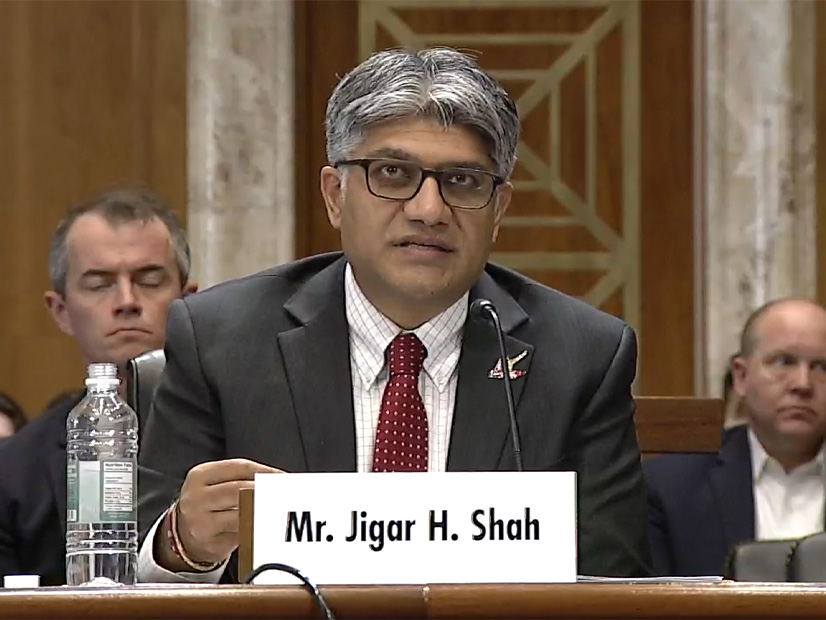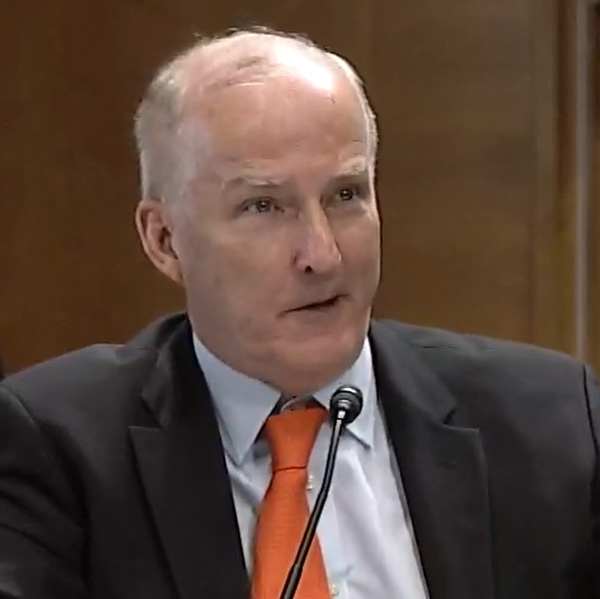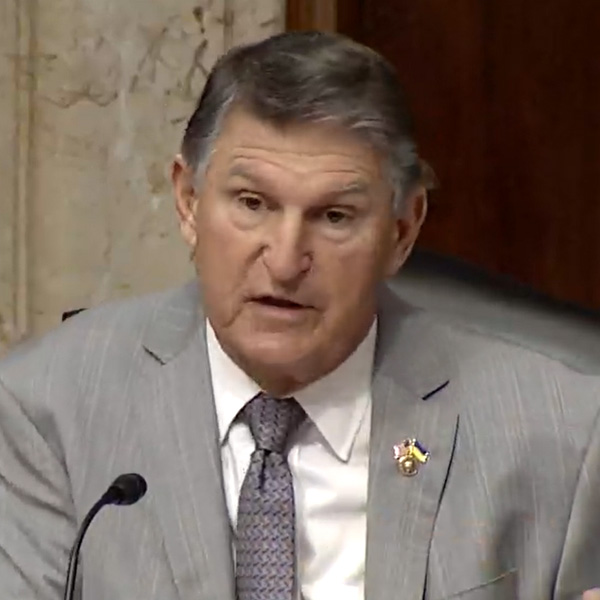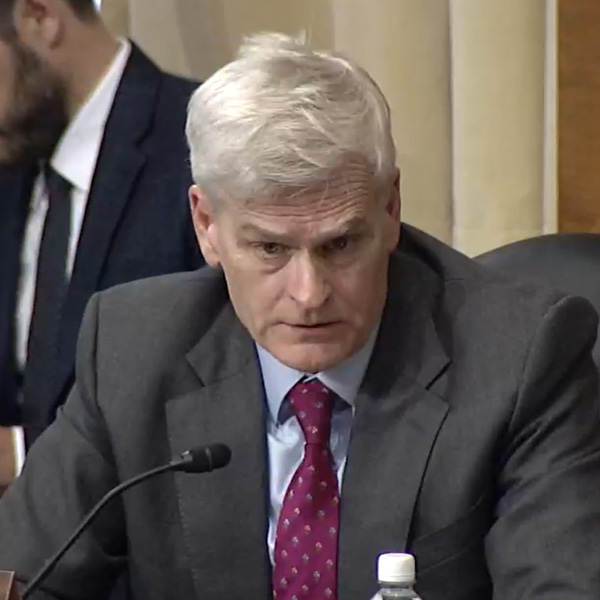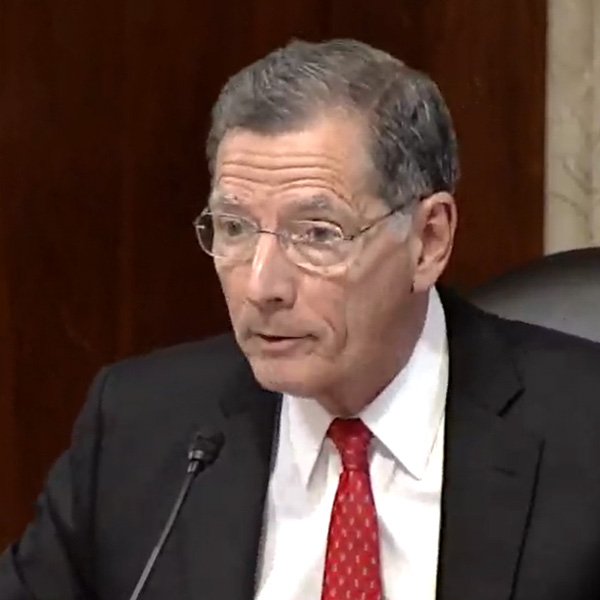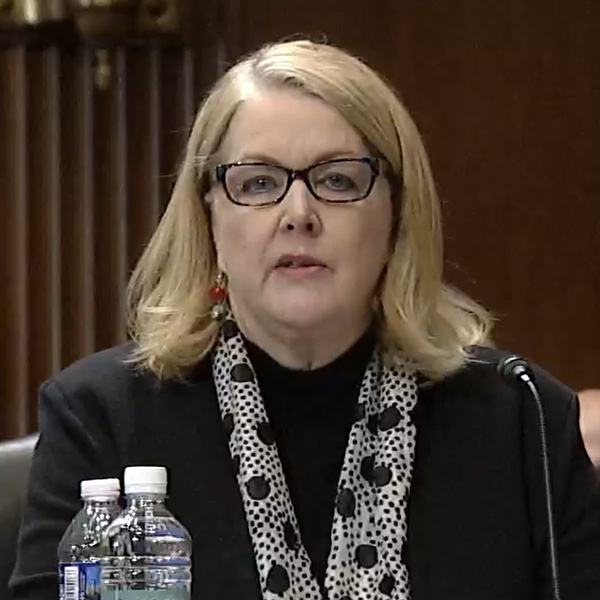Republicans on the Senate Committee on Energy and Natural Resources attempted to paint the Department of Energy’s Loan Programs Office (LPO) and other programs as tarnished with political and financial conflicts of interest during a Thursday hearing intended to examine the agency’s decision-making process for competitive loans and grants.
Sen. John Barrasso (R-Wyo.), the committee’s ranking member, opened the session with a blistering attack on the Inflation Reduction Act (IRA) and LPO Director Jigar Shah, who was one of three DOE officials at the hearing.
He was joined by David Crane, under secretary of infrastructure, and Teri L. Donaldson, the department’s inspector general.
Citing a report he released Thursday, Barrasso labelled the IRA “irresponsible, reckless and alarming,” arguing that it was weakening the U.S. and increasing the country’s dependence on China for critical minerals and other clean energy technologies.
“It can’t be salvaged; it needs to be repealed,” he said.
His attack on Shah centered on the LPO director’s founding of an industry group, the Cleantech Leaders Roundtable (CLR), in 2017. Barrasso said the CLR “appears to be a gatekeeper for companies seeking DOE funding” and touts its relationship with Shah, who has spoken at several group events, including dinners.
Noting that the LPO recently announced a $3 billion loan to a solar company, Sunova, that is a member of the roundtable, Barrasso told Shah, “I think it’s a very bad look for you personally and a very bad look for the Department of Energy.” He then pressed Shah to commit to severing any ties with the group as long as he is at DOE.
Committee chair Sen. Joe Manchin (D-W.Va.) defended the IRA and Shah. While he continues to criticize the Biden administration’s implementation of the law, Manchin called it “an all-in policy that’s working.”
“We’re producing more energy in the country today than ever in the history of the United States of America,” he said, citing high figures for oil, natural gas and solar and wind production. He also noted that he and certainly other lawmakers regularly attend industry conferences, like CERAWeek, where attendees pay to hear him speak.
While agreeing to keep his distance from CLR dinners, Shah also countered Barrasso’s questions by noting that career federal staffers oversee the evaluation and vetting of LPO applications, and he personally has no part in the decision-making on individual loans.
“I’m more accessible than a ham sandwich,” Shah said of his attendance at myriad industry conferences. “I go to lots of places, wherever American innovators and entrepreneurs need to meet me, so that they can be convinced that this country wants them to onshore and reshore their technology here in this country.”
Sen. Martin Heinrich (D-N.M.) also responded to Republican barbs about Shah’s attendance at industry conferences. “After years and years of people complaining that government is unresponsive to private industry, we finally have an administration who will meet anyone with any technology, whether it’s fossil or renewable or nuclear, and actually work with them in a way that is friendly to the private sector,” he said.
“And that is not something I think we should be discouraging. We should expect more.”
‘They Take Their Time’
Crane came in for his share of heavy interrogation from Sen. Bill Cassidy (R-La.), who wanted to know why his state was not chosen as one of the seven regional hydrogen hubs announced on Oct. 13. The hubs are being funded with $7 billion from the Infrastructure Investment and Jobs Act. (See DOE Designates Seven Regional Hydrogen Hubs.)
“I’m told that the merit reviewers of the Louisiana application, several of them did not provide any comments or ask any questions regarding the application,” Cassidy said. “In fact, there’s no evidence that they actually reviewed it. What I’m worried about is that the fix was in before we even started.”
He also suggested that the hubs designated for awards are predominantly in states with Democratic lawmakers in Congress.
Like Shah, Crane stressed that no politics were involved in the review of the applications. “The independent merit review, the federal panels, the selection officers are all career civil servants, and they evaluated many, many criteria,” he said.
Crane also explained that, as laid out in the IIJA, the regional hubs were required to be in different parts of the U.S., and “the Gulf Coast had multiple very, very strong [applications].” Texas, which like Louisiana has two Republican senators, was designated for development of a Gulf Coast hub.
Crane said funding applications for the hubs and other DOE programs all go through the agency’s recently established vetting center, which “takes as much time as they need to review all that they need to review.”
Referring to the hub announcements and the $3.46 billion for 58 grid resilience and improvement projects announced Wednesday, Crane said, “If it had not been for the vetting … process, we would have been announcing those awards at the beginning of September. So, they take their time. It’s only when they’re done and they’re comfortable that we move forward with selection.” (See DOE Announces $3.46B for Grid Resilience, Improvement Projects.)
Inspector General Underfunded
Political theater aside, the main focus of the hearing, raised by both Manchin and Barrasso, centered on ensuring that neither IIJA nor IRA dollars are going to projects that might have connections to China or other U.S. adversaries, such as Russia or Iran.
Barrasso and other GOP lawmakers had criticized the agency for a proposed $200 million grant to Microvast, a U.S. battery manufacturer with a Chinese subsidiary. Earlier this year, DOE announced it had ended negotiations with the company, which would not be receiving the grant.
More recently, Barrasso and others have zeroed in on the LPO’s announcement of an $850 million conditional loan guarantee to Kore Power, an Idaho-based battery manufacturer that is building a gigafactory in Arizona. The catch is the company previously has done its manufacturing in China and will be licensing technology from a Chinese company.
Donaldson, DOE’s inspector general, said the department’s due diligence and vetting processes still are not rigorous enough and could put taxpayers’ dollars at risk because of the huge amounts of money flowing through the department and the speed at which awards, loans and grants are being made.
More than 70 new programs are “all trying to develop criteria, including due diligence criteria,” Donaldson said. “You have massive amounts of money moving quickly. All these things happening at once create a level of risk that may candidly be unprecedented in terms of the amount of federal money moving in such a complicated landscape.
“I cannot say often enough that this is a very risky landscape,” Donaldson said. “On the issue of not funding our adversaries, I am greatly concerned about how things are going in that regard.” The vetting center is a step in the right direction, she said, but it is understaffed and has no written procedures.
Similarly, Donaldson’s own office is critically underfunded, she said, and her requests for more funding so far have been unsuccessful. According to her written testimony, only $62 million of the $64 billion DOE received from the IIJA were earmarked for her office.
At EPA, the inspector general’s office received $269 million of the $61 billion EPA received from the law.
Shah defended the LPO’s vetting process, saying the office “has an ability to do due diligence on these projects that many private sector banks don’t have because we have access to the 10,000 engineers, scientists and experts” at DOE and its national laboratories.
Further, many of the tech startups seeking federal loans are in the process of commercializing technology originally developed with DOE funding, he said. “For many of these technologies, which are frankly scary to the private sector — it is why the LPO was created — we can do rigorous due diligence and look back into demonstration projects and other data that we have to see whether the technology will work.
“We never take ‘will it work, or won’t it work’ risk today here at the LPO,” Shah said. “We do take execution risk, scale-up risk, a lot of other risks that are real risks that we have to do due diligence on.”
On the issue of Chinese influence, Shah outlined a list of steps the LPO has taken to avoid such investments, such as ensuring foreign entities cannot get board representation at companies receiving federal loans.
“Second, we make sure that all [intellectual property] licenses are one way, so that the technology comes to the United States tied to the American worker, but no additional innovations that occur here can go back to that country,” he said.
